Search the Community
Showing results for 'movies that move we'.
-
Makes sense, a few days ago someone in my gaming group shared a video of all the video game remakes being made. The one thing the author misses is the idea of the consumer. Consumer freedom aside a market with industrial tools for anyone to market themselves means consumers have to learn to be daring, more open minded and not as convenient. The good news is, in the USA alone during the sars cov 2 it was revealed how many homes didn't have an internet connection. what does this mean? Many children are actually growing up not as immersed as some thought in the mass advertised media storm. Thus space exists for the content at the bottom of the pyramid to be viewed and it does get viewed. For artists this means nothing new. If you have another way to make income or pay rent while be an artists, keep it. And while the odds your living imagination will be accessed is daunting in some media spaces, the potential always exists cause to those who have the full fledged media capability they can access you

Pop Culture Has Become an Oligopoly
A cartel of superstars has conquered culture. How did it happen, and what should we do about it?Adam Mastroianni
You may have noticed that every popular movie these days is a remake, reboot, sequel, spinoff, or cinematic universe expansion. In 2021, only one of the ten top-grossing films––the Ryan Reynolds vehicle Free Guy––was an original. There were only two originals in 2020’s top 10, and none at all in 2019.
People blame this trend on greedy movie studios or dumb moviegoers or competition from Netflix or humanity running out of ideas. Some say it’s a sign of the end of movies. Others claim there’s nothing new about this at all.
Some of these explanations are flat-out wrong; others may contain a nugget of truth. But all of them are incomplete, because this isn’t just happening in movies. In every corner of pop culture––movies, TV, music, books, and video games––a smaller and smaller cartel of superstars is claiming a larger and larger share of the market. What used to be winners-take-some has grown into winners-take-most and is now verging on winners-take-all. The (very silly) word for this oligopoly, like a monopoly but with a few players instead of just one.
I’m inherently skeptical of big claims about historical shifts. I recently published a paper showing that people overestimate how much public opinion has changed over the past 50 years, so naturally I’m on the lookout for similar biases here. But this shift is not an illusion. It’s big, it’s been going on for decades, and it’s happening everywhere you look. So let’s get to the bottom of it.
(Data and code available here.) < https://osf.io/8k23f/ >
Movies
At the top of the box office charts, original films have gone extinct.I looked at the 20 top-grossing movies going all the way back to 1977 (source), and I coded whether each was part of what film scholars call a “multiplicity”—sequels, prequels, franchises, spin-offs, cinematic universe expansions, etc. This required some judgment calls. Lots of movies are based on books and TV shows, but I only counted them as multiplicities if they were related to a previous movie. So 1990’s Teenage Mutant Ninja Turtles doesn’t get coded as a multiplicity, but 1991’s Teenage Mutant Ninja Turtles II: The Secret of the Ooze does, and so does the 2014 Teenage Mutant Ninja Turtles remake. I also probably missed a few multiplicities, especially in earlier decades, since sometimes it’s not obvious that a movie has some connection to an earlier movie.
Regardless, the shift is gigantic. Until the year 2000, about 25% of top-grossing movies were prequels, sequels, spinoffs, remakes, reboots, or cinematic universe expansions. Since 2010, it’s been over 50% ever year. In recent years, it’s been close to 100%.
Original movies just aren’t popular anymore, if they even get made in the first place.
Top movies have also recently started taking a larger chunk of the market. I extracted the revenue of the top 20 movies and divided it by the total revenue of the top 200 movies, going all the way back to 1986 (source). The top 20 movies captured about 40% of all revenue until 2015, when they started gobbling up even more.
Television
Thanks to cable and streaming, there's way more stuff on TV today than there was 50 years ago. So it would make sense if a few shows ruled the early decades of TV, and now new shows constantly displace each other at the top of the viewership charts.Instead, the opposite has happened. I pulled the top 30 most-viewed TV shows from 1950 to 2019 (source) and found that fewer and fewer franchises rule a larger and larger share of the airwaves. In fact, since 2000, about a third of the top 30 most-viewed shows are either spinoffs of other shows in the top 30 (e.g., CSI and CSI: Miami) or multiple broadcasts of the same show (e.g., American Idol on Monday and American Idol on Wednesday).
Two caveats to this data. First, I’m probably slightly undercounting multiplicities from earlier decades, where the connections between shows might be harder for a modern viewer like me to understand––maybe one guy hosted multiple different shows, for example. And second, the Nielsen ratings I’m using only recently started accurately measuring viewership on streaming platforms. But even in 2019, only 14% of viewing time was spent on streaming, so this data isn’t missing much.
Music
It used to be that a few hitmakers ruled the charts––The Beatles, The Eagles, Michael Jackson––while today it’s a free-for-all, right?Nope. A data scientist named Azhad Syed has done the analysis < https://towardsdatascience.com/hot-or-not-analyzing-60-years-of-billboard-hot-100-data-21e1a02cf304 > , and he finds that the number of artists on the Billboard Hot 100 has been decreasing for decades.
And since 2000, the number of hits per artist on the Hot 100 has been increasing.
(Azhad says he’s looking for a job––you should hire him!)
A smaller group of artists tops the charts, and they produce more of the chart-toppers. Music, too, has become an oligopoly.
Books
Literature feels like a different world than movies, TV, and music, and yet the trend is the same.Using LiteraryHub's list of the top 10 bestselling books for every year from 1919 to 2017 < https://lithub.com/here-are-the-biggest-fiction-bestsellers-of-the-last-100-years/10/?single=true > , I found that the oligopoly has come to book publishing as well. There are a couple ways we can look at this. First, we can look at the percentage of repeat authors in the top 10––that is, the number of books in the top 10 that were written by an author with another book in the top 10.
It used to be pretty rare for one author to have multiple books in the top 10 in the same year. Since 1990, it’s happened almost every year. No author ever had three top 10 books in one year until Danielle Steel did it 1998. In 2011, John Grisham, Kathryn Stockett, and Stieg Larsson all had two chart-topping books each.
We can also look at the percentage of authors in the top 10 were already famous––say, they had a top 10 book within the past 10 years. That has increased over time, too.
In the 1950s, a little over half of the authors in the top 10 had been there before. These days, it’s closer to 75%.
Video games
I tracked down the top 20 bestselling video games for each year from 1995 to 2021 (sources: 1, 2, 3, 4, 5, 6, 7) and coded whether each belongs to a preexisting video game franchise. (Some games, like Harry Potter and the Sorcerer’s Stone, belong to franchises outside of video games. For these, I coded the first installment as originals and any subsequent installments as franchise games.)The oligopoly rules video games too:
In the late 1990s, 75% or less of bestselling video games were franchise installments. Since 2005, it’s been above 75% every year, and sometimes it’s 100%. At the top of the charts, it’s all Mario, Zelda, Call of Duty, and Grand Theft Auto.
Why is this happening?
Any explanation for the rise of the pop oligopoly has to answer two questions: why have producers started producing more of the same thing, and why are consumers consuming it? I think the answers to the first question are invasion, consolidation, and innovation. I think the answer to the second question is proliferation.Invasion
Software and the internet have made it easier than ever to create and publish content. Most of the stuff that random amateurs make is crap and nobody looks at it, but a tiny proportion gets really successful. This might make media giants choose to produce and promote stuff that independent weirdos never could, like an Avengers movie. This can’t explain why oligopolization started decades ago––YouTube only launched in 2005, for example, and most Americans didn’t have broadband until 2007––but it might explain why it’s accelerated and stuck around.Consolidation
Big things like to eat, defeat, and outcompete smaller things. So over time, big things should get bigger and small things should die off. Indeed, movie studios, music labels, TV stations, and publishers of books and video games have all consolidated. Maybe it’s inevitable that major producers of culture will suck up or destroy everybody else, leaving nothing but superstars and blockbusters. Indeed, maybe cultural oligopoly is merely a transition state before we reach cultural monopoly.Innovation
You may think there’s nothing left to discover in art forms as old as literature and music, and that they simply iterate as fashions change. But it took humans thousands of years to figure out how to create the illusion of depth in paintings. Novelists used to think that sentences had to be long and complicated until Hemingway came along, wrote some snappy prose, and changed everything. Even very old art forms, then, may have secrets left to discover. Maybe the biggest players in culture discovered some innovations that won them a permanent, first-mover chunk of market share. I can think of a few:In books: lightning-quick plots and chapter-ending cliffhangers. Nobody thinks The Da Vinci Code is high literature, but it’s a book that really really wants you to read it. And a lot of people did!
In music: sampling. Musicians seem to sample more often these days. Now we not only remake songs; we franchise them too.
In movies, TV, and video games: cinematic universes. Studios have finally figured out that once audiences fall in love with fictional worlds, they want to spend lots of time in them. Marvel, DC, and Star Wars are the most famous, but there are also smaller universe expansions like Better Call Saul and El Camino from Breaking Bad and The Many Saints of Newark from The Sopranos. Video game developers have understood this for even longer, which is why Mario does everything from playing tennis to driving go-karts to, you know, being a piece of paper.
Proliferation
Invasion, consolidation, and innovation can, I think, explain the pop oligopoly from the supply side. But all three require a willing audience. So why might people be more open to experiencing the same thing over and over again?As options multiply, choosing gets harder. You can’t possibly evaluate everything, so you start relying on cues like “this movie has Tom Hanks in it” or “I liked Red Dead Redemption, so I’ll probably like Red Dead Redemption II,” which makes you less and less likely to pick something unfamiliar.
Another way to think about it: more opportunities means higher opportunity costs, which could lead to lower risk tolerance. When the only way to watch a movie is to go pick one of the seven playing at your local AMC, you might take a chance on something new. But when you’ve got a million movies to pick from, picking a safe, familiar option seems more sensible than gambling on an original.
This could be happening across all of culture at once. Movies don’t just compete with other movies. They compete with every other way of spending your time, and those ways are both infinite and increasing. There are now 60,000 free books on Project Gutenberg, Spotify says it has 78 million songs and 4 million podcast episodes, and humanity uploads 500 hours of video to YouTube every minute. So uh, yeah, the Tom Hanks movie sounds good.
What do we do about it?
Some may think that the rise of the pop oligopoly means the decline of quality. But the oligopoly can still make art: Red Dead Redemption II is a terrific game, “Blinding Lights” is a great song, and Toy Story 4 is a pretty good movie. And when you look back at popular stuff from a generation ago, there was plenty of dreck. We’ve forgotten the pulpy Westerns and insipid romances that made the bestseller lists while books like The Great Gatsby, Brave New World, and Animal Farm did not. American Idol is not so different from the televised talent shows of the 1950s. Popular culture has always been a mix of the brilliant and the banal, and nothing I’ve shown you suggests that the ratio has changed.The problem isn’t that the mean has decreased. It’s that the variance has shrunk. Movies, TV, music, books, and video games should expand our consciousness, jumpstart our imaginations, and introduce us to new worlds and stories and feelings. They should alienate us sometimes, or make us mad, or make us think. But they can’t do any of that if they only feed us sequels and spinoffs. It’s like eating macaroni and cheese every single night forever: it may be comfortable, but eventually you’re going to get scurvy.
We haven’t fully reckoned with what the cultural oligopoly might be doing to us. How much does it stunt our imaginations to play the same video games we were playing 30 years ago? What message does it send that one of the most popular songs in the 2010s was about how a 1970s rock star was really cool? How much does it dull our ambitions to watch 2021’s The Matrix: Resurrections, where the most interesting scene is just Neo watching the original Matrix from 1999? How inspiring is it to watch tiny variations on the same police procedurals and reality shows year after year? My parents grew up with the first Star Wars movie, which had the audacity to create an entire universe. My niece and nephews are growing up with the ninth Star Wars movie, which aspires to move merchandise. Subsisting entirely on cultural comfort food cannot make us thoughtful, creative, or courageous.
Fortunately, there’s a cure for our cultural anemia. While the top of the charts has been oligopolized, the bottom remains a vibrant anarchy. There are weird books and funky movies and bangers from across the sea. Two of the most interesting video games of the past decade put you in the role of an immigration officer and an insurance claims adjuster. Every strange thing, wonderful and terrible, is available to you, but they’ll die out if you don’t nourish them with your attention. Finding them takes some foraging and digging, and then you’ll have to stomach some very odd, unfamiliar flavors. That’s good. Learning to like unfamiliar things is one of the noblest human pursuits; it builds our empathy for unfamiliar people. And it kindles that delicate, precious fire inside us––without it, we might as well be algorithms. Humankind does not live on bread alone, nor can our spirits long survive on a diet of reruns.
ARTICLE LINK- graphics are present
https://experimentalhistory.substack.com/p/pop-culture-has-become-an-oligopoly
This article suggest one in three women in prison is lesbian. If true, with black women in prison over the percentage of the total population in general that means, many Black women are lesbian in the USA. But when you look at within the black populace in the usa it doesn't seem recognized or visible or...
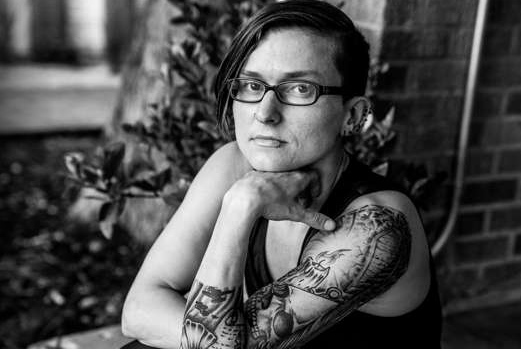
Why we didn't celebrate Gay Pride Month in women's prison
Opinion by Keri BlakingerWhen I was in prison, we relished things we could celebrate. There were the obvious ones — like releases and legal victories. And the traditional ones — like New Year’s Eve and Fourth of July. We also celebrated Labor Day and birthdays and the Super Bowl and holidays for religions we didn’t even believe in.
But we did not so much as acknowledge Gay Pride Month.
The presence of homophobia in men’s prisons is a known problem. But in the women’s lockups, it was completely different. In fact, women’s prison was the queerest place I’ve ever been — we just didn’t celebrate it. That’s because queerness, like a lot of things behind bars, carried extra risks.
That realization was a surprise for me, too. It was just a few weeks after I’d been arrested in December 2010 with a Tupperware container full of heroin. I was awaiting sentencing in an upstate New York county jail when the facility’s one openly lesbian guard pulled me aside to warn me: The higher-ups thought I was “too close” to my cellmate, who had become a good friend. Don’t sit next to each other on the bunk, the guard advised. Otherwise, we might get separated or transferred to another jail. We were annoyed at the assumption that any strong bond between women was somehow a cover for sex. But we were both scared enough to take the advice without asking questions.
A few weeks later, I was sentenced to 2.5 years behind bars, and eventually went to state prison where the staff seemed even more invested in “catching” people being gay — which was not that difficult because so many people were. Research shows that 1 in 3 women in prison identify as lesbian or bisexual. But in New York women’s prisons, it seemed like the real numbers were much higher.
That’s because a lot of the people in New York women’s lockups had prison girlfriends, even if they had identified as straight in the free world. The shift was so common we even had a catchy phrase for it: “Gay for the stay, straight at the gate.” Sometimes those prison relationships were in addition to a boyfriend or husband on the outside, and sometimes they weren’t. Sometimes they mostly resembled a close platonic friendship with a different label, and sometimes they turned into torrid affairs that led to sex in the rec yard port-a-potties. Most ended when one person got transferred, but some outlasted prison by years.
I didn’t consider myself gay for the stay because I already identified as queer before my arrest. But over the 21 months I was locked up, I dated two women. We went to the mess hall and gym together, passed notes when we couldn’t meet and sometimes made out in closets or bathroom stalls.
But even that kind of PG contact was a risk. Though sex with other prisoners was against the rules, so was hugging, holding hands or kissing. On some units, the staff made it a mission to zealously police any such activity, and we had to emphasize our supposed straightness lest we become targets for added scrutiny.
Not surprisingly, research shows queer people in women’s prisons are far more likely to spend time in solitary than straight prisoners. After all, if you got caught showing any sort of same-sex affection, you could get written up and punished with anything from a loss of phone privileges to weeks in isolation, and the sort of negative disciplinary record that left you less likely to make parole.
In theory those sorts of regulations were not inherently homophobic, and would just make it harder for prisoners to get away with sexually exploiting each other. But even the name both prisoners and staff used for the kind of disciplinary ticket you’d get reeked of stigma: Sexual transgressions were known as DGs — short for degenerate acts.
To some extent, I think we bought into that sort of institutional bigotry. Even though so many of us had girlfriends, being labeled “gay for the stay” carried a bad connotation. Some people who didn’t have girlfriends openly looked down on those who did — as if we were all just sex-starved deviants willing to risk our freedom for foolish things. (There’s probably a lengthy aside that could be made here in terms of the prevalence and stigma of biphobia in prison specifically.)
When I was writing this, I called one of my friends from prison to talk it through. Stacy pointed out that when women got caught having sex with male guards, they’d get isolated ostensibly for their own protection — and we’d all feel sorry for them. When they got written up for hooking up with a girlfriend, we had no such sympathy.
“There was no greater shame than getting a DG,” she confirmed. “You definitely internalize that.”
Even though we were gay, there was no pride.
Lately, I’ve been thinking about that a lot. When I read about book bans and “Don’t Say Gay” laws, I wonder what the downstream effects of such institutionalized bigotry will be. Already, it seems, I’m beginning to see them.
Over the past few months, for instance, I’ve been hit with hundreds of homophobic slurs and insults online — a volume of internet bigotry I’ve never gotten before, almost all in response to social media posts. To be sure, I know that queer people of color and trans folks in my position would face far more vitriol. And so far none of it has been enough to make me fear for my safety. But lately I’ve found myself questioning whether I look too queer in certain settings — both online and where I live now, in Texas. And when I think about the last time I had to ask myself that question, it’s a quick answer: It’s when I was in prison.
IN AMENDMENT
Eklil hakimi as a government official is poor, one of the lowest. but as a survivor of usa imperialism is a legend.
QUOTES FROM THE WALL STREET JOURNAL
"U.S. property and company records show that
@EklilHakimi
, the president’s longtime finance minister and ally, bought at least 10 properties in California, including during Mr. Hakimi’s time in office, and after leaving in 2018."....
"After stepping down, Mr. Hakimi and his wife, Sultana Hakimi, transferred eight of those properties to a company called Zala Group in her name at their Laguna Niguel address. His wife is the owner of the company, company records show."
......
According to California property records, their property includes a five-bedroom home and pool, in a luxury Laguna Niguel community near the beach. It is worth $2.5 million, according to the real-estate company Zillow.
..
"In total, the 10 properties are worth more than $10 million. The couple’s latest acquisition, made early this year, was a $1.1 million beachfront South Cove condo in a new development in California, according to Orange County property records." -
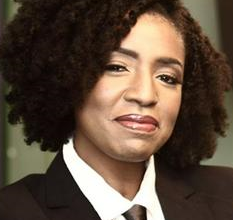
Why can't these articles ever start with the name of the individual. It is always,a black woman, a black man, her name is Tammy Williams. They mentioned Tyler perry's name but she is a black woman.
Second, the article clearly states she was given fina outright at the moment. doesn't own these studios outright at the moment. I am not certain if tyler perry owns his outright.
Third, I went to Tyler PErry Studios website < https://tylerperrystudios.com/ > and I noticed key variances between his studios website and those of Warner Bros. < https://www.wbstudiotour.com/ > or Universal Studioes < https://www.universalstudios.com/ >
Tyler perry studios website is pitching their studio to be a place for films to be made. Warner Bros is pitching their studio like a museum, or tourist attraction. Universal pitches their studio as a complete package: movies/theme parks/services.
Tyler PErry studios is new, but I see an interesting financial reality compared to its elders. Tyler PErry studios isn't old enough or been the venue for enough films to warrant the warner bros approach, and time is a mandatory factor in that. But, universal's approach doesn't require time but investment. Universal studios have movies to show. Theme parks from movie studios require movies from the movie studio to be popular enough.
Thus Tyler perry studios needs to be a place where films are made.
Why does all this talk about tyler perry studios matter in conjunction to Tammy Williams studio. Both studios seem technologically capable from the outside. But, both lack a high quantity of films being made. Now some will way , quantity is better than quality but I oppose that view. IF you look at any globally known film industry based in a particular geograph, from Bollywood or other woods of India, Hong Kong Cinema, French Cinema, Hollywood based in the california, they all have one thing in common. At least one period of time with prolific creation, where many movies are not known to the world, but gems of global cinema arrived.
The lesson is, if these Black georgian woods want to grow, they need to have someone willing to spend as much money on the film studios as on films themselves.
And that leads to my main point. Tammy Williams side Tyler PErry need someone to equal their money in studio infrastructure in making films. Comprehending, that making films in high quantity is by default a financially losing enterprise, sequentially, if Tammy Williams or Tyler PErry or either of their financial friends can only invest in surety then neither studio will reach their elders potency in triple their lifetime.ARTICLE
MOVE OVER TYLER PERRY! A BLACK WOMAN WILL OWN A $135 MULTI-MILLION DOLLAR PRODUCTION STUDIO IN ATLANTA
by Yolanda BaruchA Black woman is now a majority owner of a new multi-million dollar Film/Television studio in Atlanta, The Atlanta-Journal Constitution reports.
Tammy Williams has over 25 years of experience in the Film/Television industry. She has written and produced a plethora of projects such as films, biographies, documentaries, entertainment, and network news, according to her biography on IMDB.
Williams owned her first digital production company called Tammy’Dele Film in 2016 and is now the first Black woman to own a $135 million studio and post-production facility space in Atlanta, Georgia.
Williams and her business partner Gary Guidry, an investor and CEO of G-Square Events and Black Promoters Collective, founded Cinema South Studios.
“We’ve been patient,” she said. “This has not been an overnight thing, this vision for us,” Williams has worked towards making her dream a reality for 12 years.
They will begin to break ground in March for Cinema South Studios located north of Fayette County.
The studio will occupy 60 acres and intends to have eleven soundstages, a back-lot, a prop house, a wardrobe rental facility, and a lighting grip rental house. The production facility will include a transportation company and an office building to house a theater and post-production facilities, reports AJC.
Williams aims to have two soundstages operable by the first quarter of 2023.
“The demand for soundstages is happening globally, and the ownership rarely looks like us, let alone an African American woman,” said Guidry said in an official release, reports AJC. “When I choose to invest, I evaluate the need of the business and the ownership. Investing in Tammy Williams and her team of professionals convinced me that buying the land in Fayetteville, GA.”
Cinema South will serve as the umbrella for Williams’ production company, Tammy’Dele Films. It will host the education section of Tammy’DeleFilms Workshops and Cinema South Film Academy, where she will conduct job training seminars.
Currently, Tyler Perry Studios in Georgia is the largest film production studio in the United States, and established Perry as the first African-American to outright own a major film production studio.
https://www.blackenterprise.com/a-black-woman-will-own-a-multi-million-production-studio-in-atlanta/
SOURCE ARTICLE
https://www.ajc.com/neighborhoods/fayette/new-film-and-tv-studio-coming-to-north-fayette-county/57T3ROTTVJAMFEDJXW535EECPY/
-
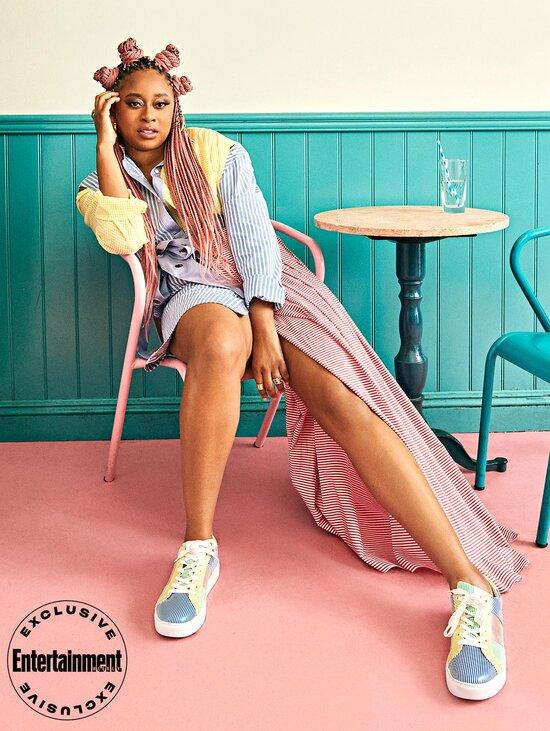
Book Smart: Phoebe Robinson on ghosting, refusing failure, and shaking up the publishing industry
The comedian, who launches her own book imprint this month, pens an essay for EW.
By Phoebe Robinson
September 16, 2021 at 12:00 PM EDTDear reader, yes, I look fabulous in these photos, but please know that I wrote this essay while pantless and seated on my couch, rocking a push-up bra (for who? I'm by myself ) and listening to Omarion's "Ice Box" because there's never a wrong time to live the way I was living in 2006. Anyway, here I am in Entertainment Weekly tasked with summarizing, IN 1,200 WORDS OR LESS, (1) my journey toward launching my literary imprint Tiny Reparations Books with my third book, Please Don't Sit on My Bed in Your Outside Clothes (Sept. 28), and (2) my opinions on the ever-changing publishing landscape. Insert shocked emoji followed by the Kanye West lyrics: "Poopy-di-scoop/Scoop-diddy-whoop." Basically, this writing assignment initially caused my mind to overload with a barrage of thoughts that all I could make out were some poops and scoops. Still, I'm not one to back down from a challenge, so here goes.
It was 2014. I told my now-former manager that I wanted to write a book. Her response: "Well you're not famous, so you shouldn't be writing a book." Did I fire her after she said that? Nope! My goofy ass kept working with her for several months until she GHOSTED ME because I was still not famous. Let's soak that in for a moment. I continued paying someone 15 percent of what I make to tell me I ain't s---. LOL I will unpack that in therapy right after I work through the fact that I wore foundation eight shades too light for my skin tone because I got my makeup done at the mall before I went to senior prom. ANYWAY! The point is: I was a struggling stand-up comic with a dream and zero knowledge of how to make it happen. And because many famous authors, movies, and TV shows romanticize what it's like to write books, I thought it would be easy, aside from the occasional bout of writer's block. I was wrong! Writing and selling a book proposal to a publisher ain't sexy! Writing a book ain't sexy! Promoting a book ain't sexy! In fact, the whole process — the idea phase straight up to publicaysh — is mostly like lovemaking after a hearty Thanksgiving dinner, a.k.a. sometimes tryptophan won't let you be great and the same can be said for the world of publishing. Let me explain.
Back in 2015, my literary agent Robert and I shopped around my proposal for You Can't Touch My Hair and Other Things I Still Have to Explain. Imprint after imprint rejected it because they claimed that books by Black women don't sell (wut?) and are not relatable (to whom, DAVE?), and that no one is interested in funny-essay collections by Black women (wut? the sequel). In the end, Plume was the only imprint that wanted me, and as Lady Gaga taught us, ya only need one person to believe in you, boo! Anyway, cut to 2016. You Can't Touch My Hair was on the New York Times best-seller list for two weeks, and the very places that turned me down emailed Robert asking why we never tried to sell my proposal to them because "they would have loved to publish me." He politely reminded them that he did and what their responses were. And while it's good for the ego to prove a bunch of close-minded and biased heauxes wrong, I kept thinking about all the women, POCs, and queer people who don't end up with this happy ending, let alone the opportunity to get their writing published. I wanted to do something with what little power I had, but then life happened.
My TV career grew thanks to my 2 Dope Queens specials for HBO. I fell in love. Finally traveled after being in debt for over a decade. Had creative projects fall apart. Got a Peloton. JK. But also, #PelotonIsLyfe. Was in early talks with Plume to partner with me and launch an imprint. And yes, of course, coronavirus. It made the world stop. All the plans everyone had vanished. Like most people, I clung to anything that felt "normal," and that "anything " was books. Every morning, I would get up early and read for hours. Books became my escape, an oasis, a new way of understanding our drastically different world, and most important, they brought me immense joy. Robert could sense this whenever we chatted on the phone just as friends, and when I told him about my idea for Please Don't Sit on My Bed, he said that I should launch my imprint and that could be the first book published. #UltimateFlex, but also, hmm. In the face of the summer of social reckoning spurred by the murder of George Floyd, having an imprint seemed… irrelevant? But then I reminded myself that every time I read, I felt inspired that there was something more than the collective trauma we were enduring. If anything, the suffocating bigness of COVID and police brutality illuminated how special and important books are. So having my own imprint went from seeming trivial to a "why the hell not?" Given the state of the world, the worst that could happen is failure.
A word, if I may: After you've been told more times than you care to count that you don't have what it takes to achieve your goals, that you and your work are not valuable, or you're just given an emphatic "no" without any further explanation only to prove them wrong by not just knocking your goals off your to-do list, but exceeding the wildest dreams you've ever had, you start to realize that worrying about failing is not worth your time. Even if what you're going after doesn't work out, betting on yourself is the smartest and the best no-brainer thing you could do. And launching an imprint during COVID AND the reckoning AND in an industry that, to say the least, has not always embraced women, POCs, and the queer community is pretty damn smart. The contributions to the written word from these groups are ASTOUNDING, and it's my privilege to, in some small way, help them carry on the tradition.
Sure, the jury's still out on how Tiny Reparations Books will perform, but in my eyes, it's already a success. I have eight authors on the slate. All of them are first-timers. I guess my experience shopping around You Can't Touch My Hair really stuck with me, and I never wanted anyone to experience the amount of ignorance, disinterest, and lack of faith in their talent as I had. So it is my honor to be in the trenches with them, and my only hope is that every promise made by publishing houses during the summer of 2020 and the viral #PublishingPaidMe conversation is delivered upon. It's not up to me nor any of the brilliant writers on my slate to do the long overdue work publishing needs to do to be more inclusive, to pay writers from marginalized communities better, to nurture and hire more women, POCs, and queer people in gatekeeper positions. We're watching you, publishing industry, because we love you — and we know you can do better.
https://ew.com/books/phoebe-robinson-essay-fall-books-special/
Who doesn’t read books in America?
BY RISA GELLES-WATNICK AND ANDREW PERRINRoughly a quarter of American adults (23%) say they haven’t read a book in whole or in part in the past year, whether in print, electronic or audio form, according to a Pew Research Center survey of U.S. adults conducted Jan. 25-Feb. 8, 2021. Who are these non-book readers?
Several demographic traits are linked with not reading books, according to the survey. For instance, adults with a high school diploma or less are far more likely than those with a bachelor’s or advanced degree to report not reading books in any format in the past year (39% vs. 11%). Adults with lower levels of educational attainment are also among the least likely to own smartphones < http://www.pewinternet.org/fact-sheet/mobile/ > , an increasingly common way for adults to read e-books.
In addition, adults whose annual household income is less than $30,000 are more likely than those living in households earning $75,000 or more a year to be non-book readers (31% vs. 15%). Hispanic adults (38%) are more likely than Black (25%) or White adults (20%) to report not having read a book in the past 12 months. (The survey included Asian Americans but did not have sufficient sample size to do statistical analysis of this group.)
Although the differences are less pronounced, non-book readers also vary by age and community type. Americans ages 50 and older, for example, are more likely than their younger counterparts to be non-book readers. There is not a statistically significant difference by gender.
The share of Americans who report not reading any books in the past 12 months has fluctuated over the years the Center has studied it. The 23% of adults who currently say they have not read any books in the past year is identical to the share who said this in 2014.
The same demographic traits that characterize non-book readers also often apply to those who have never been to a library. In a 2016 survey < http://www.pewinternet.org/2016/09/09/a-portrait-of-those-who-have-never-been-to-libraries/>, the Center found that Hispanic adults, older adults, those living in households earning less than $30,000 and those who have a high school diploma or did not graduate from high school were among the most likely to report in that survey they had never been to a public library.
Note: Here are the questions, responses and methodology used for this analysis < https://www.pewresearch.org/wp-content/uploads/2021/09/Non-Book-Readers-2021-Methodology-Topline.pdf >. This is an update of a post by Andrew Perrin originally published Nov. 23, 2016.
https://www.pewresearch.org/fact-tank/2021/09/21/who-doesnt-read-books-in-america/
Inside the rise of influencer publishing
Many bestsellers of the last few years originated outside “traditional” publishing houses. But are influencers good for books?By Ellen Peirson-Hagger
We live in a world where everyone is a brand,” said Laura McNeill, a literary agent at Gleam Titles, which was set up by Abigail Bergstrom in 2016 as the literary arm of the influencer management and marketing company Gleam. Many of the UK’s biggest selling books of the last few years, from feminist illustrator Florence Given’s Women Don’t Owe You Pretty to Instagram cleaning phenomenon Mrs Hinch’s Hinch Yourself Happy, have been developed at the agency, and then sold for huge sums to traditional publishing houses.
Celebrity autobiographies and commercial non-fiction have existed for a long time. Gleam Titles’ modus operandi is more specific: it has a focus < https://www.gleamfutures.com/gleamtitles > on “writers who are using social media and the online space to share their content in a creative and effective way”. The term “author”, for the clients with which McNeill and her colleagues work, may be just one part of a multi-hyphen career that also includes “Instagrammer”, “podcaster” or “business founder”. These authors – whose books will become part of their brands – therefore require a different kind of management to traditional literary writers. “I do think the move to having talent agencies with in-house literary departments comes from these sorts of talents being a bit more demanding,” McNeill said. “I don’t want to come across as if those clients are difficult. But they are different.”
The biggest draw for publishers bidding for books by influencers is that they have committed audiences ready and waiting. Gleam understands the importance of these figures: on its website, it lists authors’ Instagram and Twitter followings beneath their biographies < https://www.gleamfutures.com/scarlettcurtis-titles > . When publisher Fenella Bates acquired the rights for Hinch Yourself Happy in December 2018, she noted < https://www.thebookseller.com/news/mrs-hinch-signs-mj-after-11-way-auction-917271 > Sophie Hinchcliffe’s impressively quick rise on Instagram, having grown her following from 1,000 to 1.4 million in just six months. Upon publication in April 2019, the book sold 160,302 copies in three days < https://www.thebookseller.com/news/mj-signs-second-book-mrs-hinch-1068146 > , becoming the second fastest-selling non-fiction title in the UK (after the “slimming” recipe book Pinch of Nom).
Anyone who has harnessed such an audience to sell products, promote a campaign, or otherwise cultivate a successful personal brand is an exceptionally desirable candidate to a publisher that wants to sell books. What’s more, the mechanics of social media means the size of these audiences is easily measurable, making the authors “cast-iron propositions” for publishers, said Caroline Sanderson, the associate editor of the trade magazine the Bookseller, who has noticed a huge increase in the number of books written by social media stars over the last couple of years.
A spokesperson for Octopus Books, which published Florence Given’s Women Don’t Owe You Pretty in June 2020, suggested that a book deal can raise an influencer’s profile too. When the book was acquired, Given had approximately 100,000 followers on Instagram. “Her book was acquired because she was an exceptional writer, not because she was an influencer,” they said. “By the time it was announced, she had 150,000 followers and when the book was published her audience had jumped to circa 350,000 followers. As the book and its message grew, so did her audience.” Women Don’t Owe You Pretty has spent 26 weeks in the Sunday Times bestseller charts according to data from Nielsen BookScan, and, as of August 2021, has sold over 200,000 copies.
Such authors also bring skills that a traditional novelist, for example, would not be expected to have. “These people are incredibly good at marketing themselves”, McNeill said, “which puts a lot of the work from the marketing and publicity departments of publishing houses onto the clients themselves.” In her previous role as an agent at Peters Fraser and Dunlop, a literary and talent agency that was established in 1924, McNeill sold books by Chidera Eggerue, also known as “the Slumflower”, and by “Chicken Connoisseur” Elijah Quashie, best known for his Youtube show The Pengest Munch. During the process, McNeill realised she was working with a new type of author: Eggerue and Quashie “wanted to talk about the branding and the image and the 360-element of it a lot more than any other writers I’d worked with before,” she said.
Some may feel inherently suspicious of the authenticity of anyone who makes a career out of social media, a pursuit often deemed trivial or shallow. Such suspicions – which often appears as disdain, or even ridicule – are prevalent in the publishing industry regarding books written by influencers, McNeill said. She told me she has observed a “snobbishness” about the books she works on, “from industry insiders way more than from the public”. One criticism often levelled against influencer authors is that they use ghostwriters. “There’s a misconception that none of these people write their own books, but plenty of them do,” McNeill said. “They’re creative talents and perfectly capable, but they might just need a bit more hand-holding and editing.”
When Quadrille published What a Time To Be Alone: The Slumflower’s Guide To Why You’re Already Enough in July 2018, it sold 1,961 copies in its first week, according to Nielsen BookScan. That should have placed it fourth on the Sunday Times general hardbacks bestseller list the following week, but “they just picked it out”, McNeill claimed, and put it in the “manuals” list instead, because its subtitle used the word “guide”. To her, this demostrates the industry’s unwillingness to understand the nature of the book, and to accept its significant audience.
The continued popularity of books such as Sally Rooney’s Normal People and Charlie Mackesey’s The Boy, The Mole, The Fox and the Horse, as well as hugely successful titles published in the last 18 months, such as Hilary Mantel’s The Mirror and the Light, have been credited with buoying the publishing industry during the pandemic. It makes sense that best-selling titles of any genre are helpful for the industry as a whole, as they get people excited about reading and into bookshops. But Kit Caless, co-founder of the independent London publisher Influx Press, called “the Reaganomic idea of a trickle-down system” a “fallacy”. The suggestion that a highly commercial book, such as Stacey Solomon’s Tap to Tidy, which spent ten weeks in the Sunday Times bestseller list, could be a “gateway drug” into reading is “patronising” and “tokenistic”, he said. “If they’re having to use Stacey Solomon as a Trojan horse to get people to read, I think that’s a failure on behalf of publishers to engage those readers in the first place.”
For the Bookseller’s Caroline Sanderson, it’s exciting that books still hold value among people who have found their success in the digital age. “I always think it’s amazing when people have built a platform on Twitter or Instagram, or increasingly TikTok, and the thing that they most want to do is a book, that it’s still the ultimate medium,” she said. She thinks the trend signifies “a real vote of confidence in what books are and what they can do and who they can reach”.
Sanderson said she has heard instances of people who, excited to read a book after seeing it advertised on social media, have asked “Where can I buy that?”, because they’ve never considered purchasing a book before. “It shows that there are people out there who don’t buy books but might. For me, that’s a holy grail. If they buy one book, they might buy another.” Though, she accepts, because the commercial non-fiction market is composed of a lot of “non-traditional” book-buyers, the likelihood is that they will buy online, often via am*zon. “The extent to which they benefit our highstreet bookshops is a concern.”
McNeill said that what she finds most exciting about the authors she works with – who are increasingly professionals who use social media to share their expertise, such as the astrophysicist Becky Smethurst, known on YouTube as “Dr Becky” – is that she’s breaking new ground, working with writers who wouldn’t necessarily have been given a chance to write a book for a mainstream publisher before. “I do think there is not enough risk-taking in publishing,” she said.
Caless agrees that mainstream publishing is too cautious, but considers Gleam part of that mainstream. Publishing a book by someone who already has a sizeable social media following is inherently risk-free, he said. While smaller publishers like Influx might “have an innate desire to take risks,” he said, “most publishers will publish books because they think they’ll make money; not because they think they’re good or healthy for culture.”
McNeill believes her books do both. “I’m excited by people who are able to communicate their expertise to a wider audience,” she said of Dr Becky, whose second book, an accessible exploration of black holes, will be published by Macmillan in 2022. And, time and time again, such an attitude has also proved to be immensely profitable. “These books had to fight for their place in the market. But now no one’s able to close their eyes to the phenomenon of how well these people are able to sell and communicate to their audiences.”
https://www.newstatesman.com/culture/books/2021/09/inside-the-rise-of-influencer-publishing
REFERRAL - Influencer Authors, Library eBooks, and a Ramona Quimby Walking Tour: This Week in Book News
https://kobowritinglife.com/2021/09/24/influencer-authors-library-ebooks-and-a-ramona-quimby-walking-tour-this-week-in-book-news/C. S. Lewis review of the Hobbit
C. S. Lewis Reviews The Hobbit, 1937
By C.S. Lewis November 19, 2013A world for children: J. R. R. Tolkien,
The Hobbit: or There and Back Again
(London: Allen and Unwin, 1937)
The publishers claim that The Hobbit, though very unlike Alice, resembles it in being the work of a professor at play. A more important truth is that both belong to a very small class of books which have nothing in common save that each admits us to a world of its own—a world that seems to have been going on long before we stumbled into it but which, once found by the right reader, becomes indispensable to him. Its place is with Alice, Flatland, Phantastes, The Wind in the Willows. [1]
To define the world of The Hobbit is, of course, impossible, because it is new. You cannot anticipate it before you go there, as you cannot forget it once you have gone. The author’s admirable illustrations and maps of Mirkwood and Goblingate and Esgaroth give one an inkling—and so do the names of the dwarf and dragon that catch our eyes as we first ruffle the pages. But there are dwarfs and dwarfs, and no common recipe for children’s stories will give you creatures so rooted in their own soil and history as those of Professor Tolkien—who obviously knows much more about them than he needs for this tale. Still less will the common recipe prepare us for the curious shift from the matter-of-fact beginnings of his story (“hobbits are small people, smaller than dwarfs—and they have no beards—but very much larger than Lilliputians”) [2] to the saga-like tone of the later chapters (“It is in my mind to ask what share of their inheritance you would have paid to our kindred had you found the hoard unguarded and us slain”). [3] You must read for yourself to find out how inevitable the change is and how it keeps pace with the hero’s journey. Though all is marvellous, nothing is arbitrary: all the inhabitants of Wilderland seem to have the same unquestionable right to their existence as those of our own world, though the fortunate child who meets them will have no notion—and his unlearned elders not much more—of the deep sources in our blood and tradition from which they spring.
For it must be understood that this is a children’s book only in the sense that the first of many readings can be undertaken in the nursery. Alice is read gravely by children and with laughter by grown ups; The Hobbit, on the other hand, will be funnier to its youngest readers, and only years later, at a tenth or a twentieth reading, will they begin to realise what deft scholarship and profound reflection have gone to make everything in it so ripe, so friendly, and in its own way so true. Prediction is dangerous: but The Hobbit may well prove a classic.
Review published in the Times Literary Supplement (2 October 1937), 714.
1. Flatland (1884) is by Edwin A. Abbott, Phantastes by George MacDonald (1858).
2. The Hobbit: or There and Back Again (1937), chapter 1.
3. Ibid., chapter 15.
Image and Imagination: Essays and Reviews, by C. S. Lewis, edited by Walter Hooper. Copyright © 2013 C. S. Lewis Pte Ltd. Reprinted with the permission of Cambridge University Press.
This article originally appeared in the Times Literary Supplement. Click here to read it on the TLS site.
https://www.theparisreview.org/blog/2013/11/19/c-s-lewis-reviews-the-hobbit-1937/Referral Article
https://www.openculture.com/2013/11/c-s-lewis-reviews-the-hobbit-by-j-r-r-tolkien-in-1937.html
-
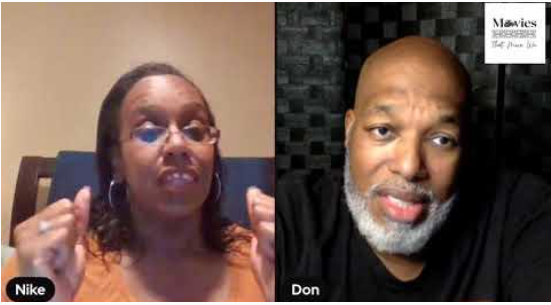
My intial reply to the video
nina simone was a polymath... the problem with black people when we gather in public is, for events meant for music or community, march on washington/summer of jazz/ jazzmobile/million man march/black film festival.. black people don't produce violence. But, we do produce violence when the tipping points are reached. ... I disagree with both of you. I don't think the lack of media outlets wanting to display the Summer of Soul is a shame. Ownership matters folks. You both mentioned how Gil Scott Heron or the Last Poets were not on the bill. But that was and is part of the problem. White people own media outlets that allow all spectrums of the white community to speak. Name me one Black owned media outlet that serves five unique black segments in the black community? Yes, my parents remember that concert. To be blunt, Harlem has a long history of similar events. That famous photo at Duke Ellington's house is not a joke. Harlem between the 1920s -1970s had the greatest collection of black entertainers for a region in any city in the usa. The recording of the concert was a surprise for my parents. ... Don, no one is a complete encyclopedia:)
Someone somewhere in the internet stated the Black community ended the great era of Black Music in the 1970s, I oppose that position. The following is my reply
We didn't end it. All musical eras end. To be blunt, the black community in usa had many great musical times after the war between the states. The st louis/to harlem slide jazz era. The big band era. The R&B initial era. Motown. Many great black songwriters in each of those eras. We didn't end , we changed. Black people in the usa's music changes as we change. The reason why we made the blues is cause right after the war between the states, many of us had a sadness, a blue mood. When we started growing more financially positive, actually getting whites to allow us to own businesses or get paid to do ork while still being nonviolent <not saying all black people wanted that but I comgress>, we turned the blues into rhythm and blues. After world war II when the black community oddly enough had large financial growth for individuals, we created rock and roll from R&B which is from the Blues. We created Funk as a blues version of the motown sound. Where motown was manicured black music for the white audience, in the same vein as scott joplin's minstrel music, which he did alongside his ragtime works. Ragtime was in my view, a piano version of jazz, which was started with horned instruments in new orleans. Jazz progressed from the northern expansion. Starting from the storyville's of new orleans to St Louis, to Chicago to HArlem, to every bar from Shanghai to Berlin to Rio de janeiro to calcutta to Cairo all around the earth, jazz was played at one time, a rare achievement for one art form. So much so that colleges throughout humanity teach jazz. Many surviving jazz musicians were able to financially survive being the first jazz teachers in schools where only white jazz teachers may exist today. No, black music changes as black people change. House Music comes from the urban black community, which in the vein of funk fuses all the many prior musical forms from Blues or Jazz. But with a larger technological capability than Funk, which began using tech in unique ways for music. We didn't end it. Today you can hear way too many excellent black blues musicians under 50, black jazz musicians under 50. White owned media companies dominate the industry and they prefer pop music, which is hat Motown or the Ragtime was. All three are intended to appeal to mass audiences, be good to sell. All three evaded or try to evade cultural friction. So, all is good, the black musical heritage lives in the black community for me, and continuous to grow or change, becoming more global, having more linguistical width than in the past, more cultural variance. All is good.
Movies That Move We video Reviewhttps://www.youtube.com/watch?v=6L1bNVo8gYU


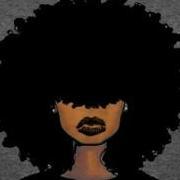
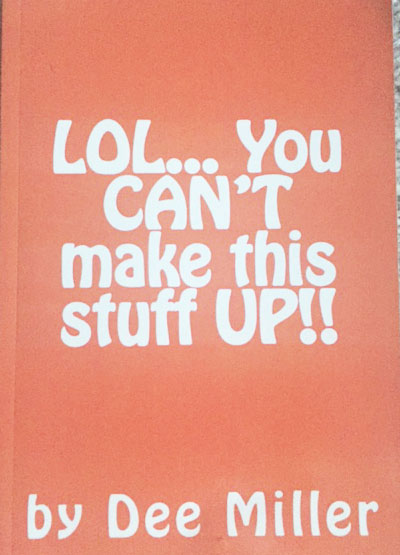

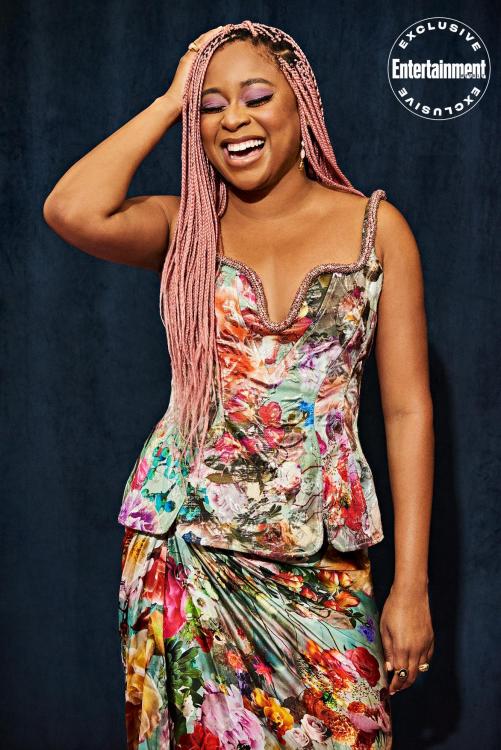




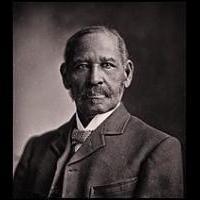
.thumb.jpg.3bf9f25532a7944736ddb02aa1b64269.jpg)


